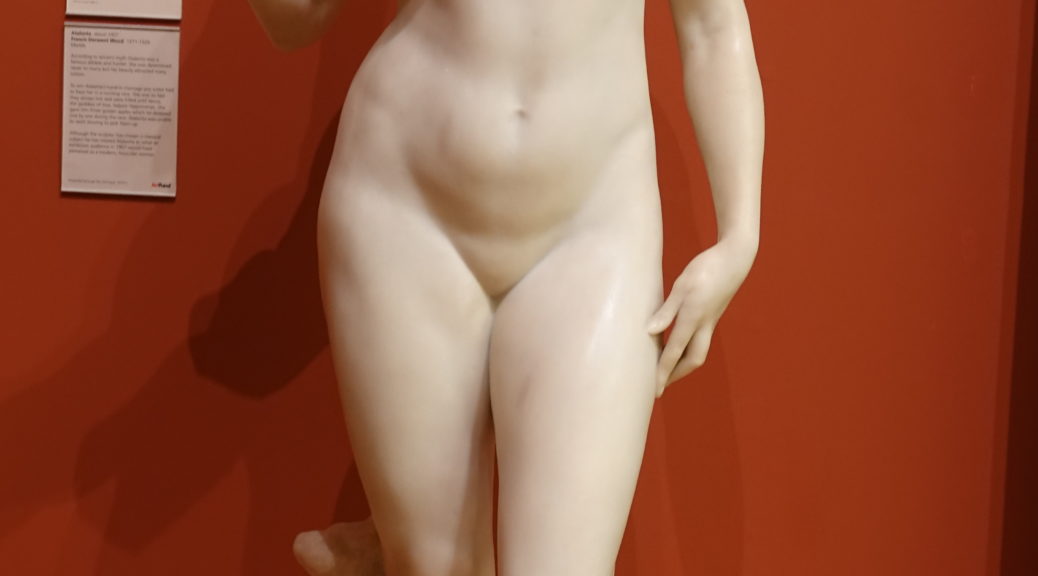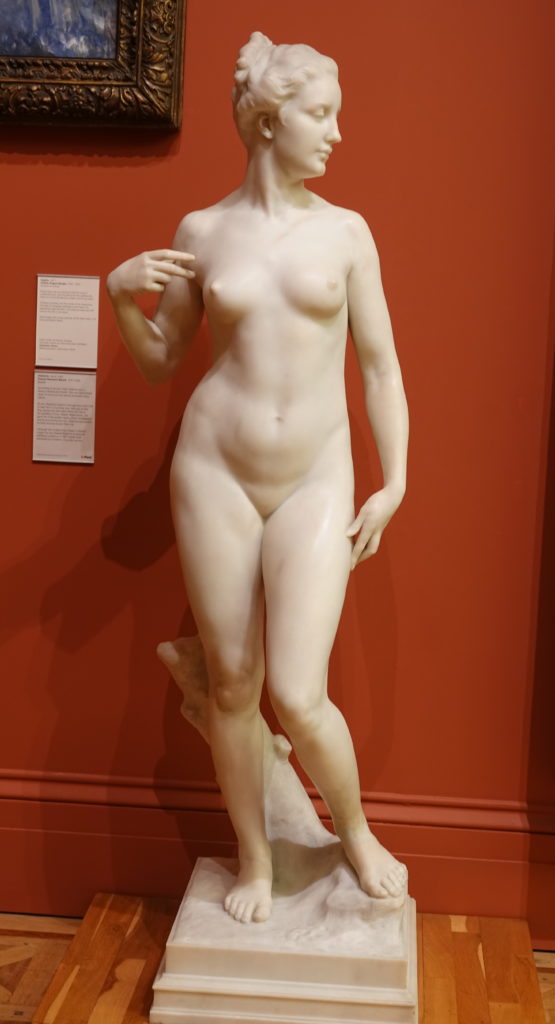
Back on the Cut
Our engine was reinstalled this morning, and tested early this afternoon, and by mid-afternoon we were back on the canal. The weather was warm but windy, so I was only wearing shorts and a light shirt when a sudden rainstorm drenched me when we were going through a lock. Luckily it was as brief as it was heavy. The sun came out again, and I was dried out by the time we moored for the evening. Managing the boat in strong winds is tricky so I didn’t take any photos today.
Instead I’m going to talk about Manchester some more.
While we were in the Manchester Art Gallery, Greg commented that characters from classical mythology appeared naked far more often in art than the did in the original myths. This, for instance, is Atalanta.

She is noted for two things, being a huntress, and being a virgin. Clearly this must be her hunting gear, as running around in the nude was no more conducive to remaining a virgin in ancient Greece than it would be in modern Manchester. Just what was she hunting that did not require even sandals, let alone clothing? Dolphins?
Oh, wait. Apparently she killed two centaurs who attempted to rape her, so perhaps hanging out in the nude was some sort of centaur bait.
Or maybe the sculptor found that his statues would sell faster if he didn’t bother with clothes.
According to Suetonius…
Quare Parrasi quoque tabulam, in qua Meleagro Atalanta ore morigeratur…
C. Suetonius Tranquillus, Tiberius Chapter 44
… while Ovid says…
Milanion umeris Atalantes crura ferebat:
Si bona sunt, hoc sunt accipienda modo.
P. Ovidius Naso, Ars Amatoria 775-6
… so it seems Atalanta was only a virgin if you don’t count oral sex. It’s possible that Ovid was talking about a completely different Atalanta, or that it was one woman who got about a bit. She was noted for being a fast runner.
No, I’m not going to translate the Latin because I’m sure that Nick won’t be able to resist.
Manchester made an interesting contribution to the history of economics. Adam Smith is usually regarded as the founder of free market economics, but it was two 19th century Manchester politicians, Richard Cobden and John Bright, who attempted to make these ideas part of government policy.
Together they campaigned for the repeal of the high tariffs on imported food, the abolition of slavery, pacifism, freedom of the press, and the separation of church and state. They believed that peace and prosperity would be best served by free trade between countries and individuals, and that a more equitable society would result. I hate to think what they would make of Brexit.
One thought on “Back on the Cut”
Ha! I’m not going to jeopardise this blog’s family-friendly rating by uncloaking those quotes from the decent obscurity of a learned language…